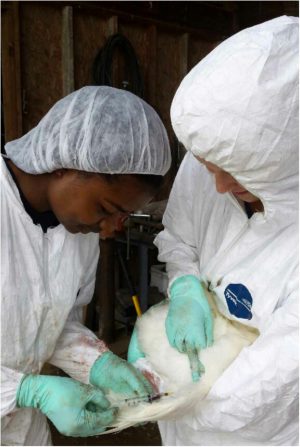
The MSU College of Veterinary Medicine Summer Food Systems Fellowship (FSF) Program is a unique partnership between the College and industry partners who are interested in ensuring the supply of well-trained veterinarians to work within the food animal industry.
This program provides veterinary students with the opportunity to become exposed to the food industry through experiential learning opportunities working with partners in agriculture industries or MSU faculty. The positions are structured to be beneficial for both the student and the hosting partner. Students complete projects that lead to a further understanding of the food industry by the student. To further broaden the summer experience, students and industry partners participate in a variety of educational initiatives and professional development opportunities, including seminars and training workshops.
2025 FSF FlyerWho can apply?
FSF Program Reports
2023 Summer FSF Program Report
2020 Summer FSF Program Report
2019 Summer FSF Program Report
2018 Summer FSF Program Report
2017 Summer FSF Program Report
2016 Summer FSF Program Report
2015 Summer FSF Program Report
2014 Summer FSF Program Report
2013 Summer FSF Program Report
2012 Summer FSF Program Report
2011 Summer FSF Program Report
2010 Summer FSF Program Report
The FSF is open to students that:
- Are currently admitted or enrolled in a veterinary program that is accredited by the American Veterinary Medical Association Council on Education.
- Are a citizen or permanent resident of the United States.
Due to the nature of the program’s funding, no exception to these conditions are allowed.
Program benefits
- $7,000 stipend
- $500 research travel stipend
- Participation in
- Career exploration sessions
- Professional development opportunities
2025 Cycle
Applications are open until December 27, 2024. The program will take place May 26 to August 8, 2025.
Apply OnlineYou can access the descriptions of the positions offered for the 2025 summer here (note that more positions could be added until the application deadline as we continue to enlist more partners).
If you have any questions about the Summer Food Systems Fellowship, check this FAQ sheet. If your question isn't answered in the FAQ, contact Dr. Angel Abuelo at abuelo@msu.edu.

This program is supported by competitive grant no. 2021-67037-34657 from the USDA National Institute of Food and Agriculture.
